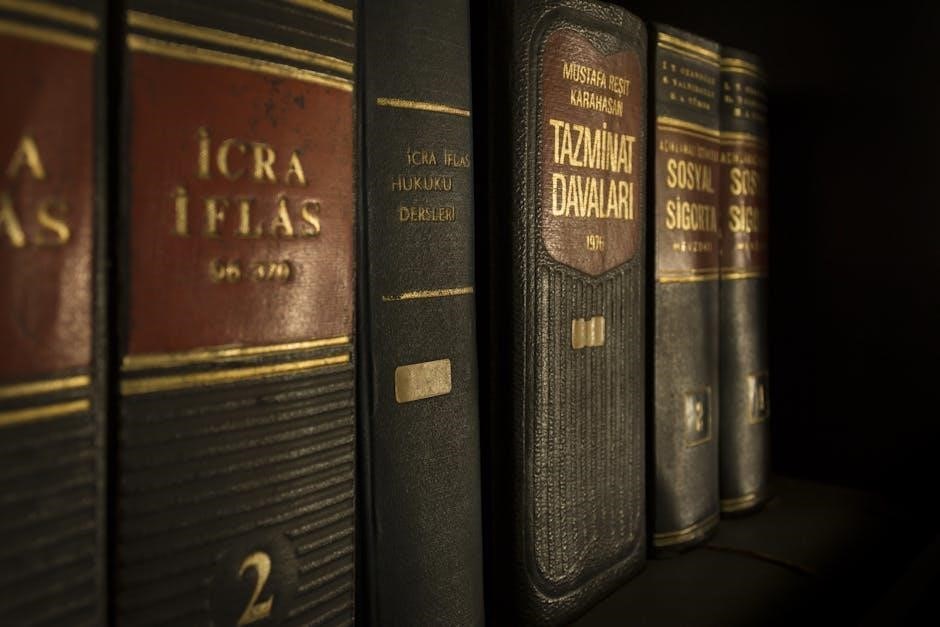John Rawls, a renowned American political philosopher, introduced his influential A Theory of Justice, reshaping modern moral and political philosophy with his social contract framework.
1.1. Who Was John Rawls?
John Rawls (1921–2002) was an American political philosopher whose work significantly influenced modern liberal thought. Born in Baltimore, Maryland, he studied philosophy at Princeton University and later taught at Harvard. Rawls is best known for his groundbreaking book, A Theory of Justice (1971), which revitalized political philosophy and introduced the concept of “justice as fairness.” His theory challenged utilitarianism, emphasizing equal basic liberties and fair distributive justice. Rawls’s ideas have shaped debates on morality, politics, and social institutions, making him a central figure in 20th-century philosophy.
1.2. The Significance of “A Theory of Justice”
A Theory of Justice (1971) is John Rawls’s seminal work that revitalized political philosophy, offering a moral framework for evaluating social institutions. It introduced the concept of “justice as fairness,” challenging utilitarianism and other traditional theories. Rawls’s innovative ideas, such as the original position and the veil of ignorance, provided a structured approach to determining principles of justice. The book’s significance lies in its ability to reconcile liberty and equality, influencing modern liberal thought and shaping debates on distributive justice, democratic systems, and global justice. Its impact extends beyond academia, addressing real-world issues like economic inequality and social cooperation.
1.3. Overview of the Theory of Justice as Fairness
Rawls’s “justice as fairness” posits that societal justice should be grounded in principles chosen by rational individuals behind a “veil of ignorance,” ensuring impartiality. This theory prioritizes equal basic liberties and fair equality of opportunity, aiming to balance individual freedoms with social equality. It rejects utilitarianism, emphasizing instead the importance of institutional justice and the basic structure of society. The theory’s core lies in its procedural fairness and the idea that justice is the first virtue of social institutions, guiding their design to promote equity and moral principles. This framework has become foundational in modern political philosophy and ethical discourse.

The Original Position and the Veil of Ignorance
Rawls’s original position and veil of ignorance are central to his theory, ensuring impartiality by imagining individuals choosing principles of justice without knowledge of their personal circumstances.
2.1. The Concept of the Original Position
The original position is a hypothetical scenario in Rawls’s theory where rational individuals come together to agree on principles of justice. Behind the veil of ignorance, they are unaware of their personal characteristics, social status, or position in society. This ensures fairness and equality in the decision-making process. The original position is designed to eliminate biases and self-interest, allowing individuals to choose principles that benefit everyone equally. It serves as the foundation for deriving Rawls’s two principles of justice, emphasizing fairness and equality. This concept is central to Rawls’s vision of a just society.
2.2. The Role of the Veil of Ignorance
The veil of ignorance is a crucial element in Rawls’s original position, ensuring fairness by depriving individuals of knowledge about their personal traits, social status, or future position in society. This ignorance prevents self-interest and biases from influencing decisions, fostering an impartial choice of justice principles. By removing specific information, the veil ensures that the principles chosen are universal and equitable, prioritizing the well-being of the least advantaged. It guarantees that the principles of justice are based on reason and fairness rather than personal gain, making the social contract legitimate and just for all members of society.
2.3. Rational Choice Behind the Veil of Ignorance
Behind the veil of ignorance, individuals engage in rational choice to establish principles of justice, unaware of their personal characteristics or societal roles. This ensures impartiality, as decisions are based solely on reason and the goal of maximizing well-being. Rawls argues that rational beings would prioritize securing basic liberties and equitable opportunities, leading to the adoption of his two principles of justice. The first ensures equal basic rights, while the second promotes distributive justice, guaranteeing fair equality of opportunity. This rational process underpins Rawls’ vision of a just society, balancing individual freedoms with social equity.
The Two Principles of Justice
Rawls’ two principles of justice ensure equal basic liberties and fair equality of opportunity, prioritizing the first over the second to maintain a just and equitable society.
3.1. The First Principle: Equal Basic Liberties
Rawls’ first principle of justice mandates that all citizens are entitled to equal basic liberties, such as freedom of speech, religion, and political participation. This principle is foundational, ensuring that no individual or group is deprived of these fundamental rights. It emphasizes the importance of equal access to legal protections and democratic processes, fostering a society where everyone can freely pursue their goals. This principle takes precedence over the second, guaranteeing that basic liberties are not compromised for economic or social gains, thus safeguarding individual autonomy and dignity as the cornerstone of a just society.
3.2. The Second Principle: Distributive Justice and Fair Equality of Opportunity
Rawls’ second principle addresses distributive justice and fair equality of opportunity. It ensures that social and economic inequalities are arranged to benefit the least advantaged members of society. This principle emphasizes fair access to education, employment, and other resources, preventing unfair disadvantages based on race, gender, or class. It promotes a system where individuals have equal opportunities to succeed, regardless of their background. The principle balances individual merit with societal support, aiming to create a more equitable society where everyone can thrive. This ensures that economic systems serve the common good, aligning with the broader goals of justice as fairness.
3.3. The Priority of the First Principle Over the Second
Rawls establishes a clear lexical order, prioritizing the first principle of equal basic liberties over the second principle of distributive justice. This means that basic liberties, such as freedom of speech and conscience, cannot be compromised for any societal benefit, including economic equality. Rawls justifies this priority by arguing that these liberties are essential for individuals to pursue their life plans and maintain their dignity. Without secure basic liberties, distributive justice loses its moral foundation. This ordering ensures that justice as fairness remains consistent and coherent, with individual freedoms serving as the bedrock of a just society.

Justice as Fairness and Its Core Ideas
John Rawls’ concept of justice as fairness emphasizes equality and moral principles, arguing that society’s basic structure should be governed by fair, agreed-upon rules ensuring equity and freedom for all.
4.1. Justice as the First Virtue of Social Institutions
Rawls posits that justice is the first virtue of social institutions, akin to truth in systems of thought. He argues that laws and institutions, no matter how efficient, must prioritize justice. This means that societal structures should be designed to ensure fairness and moral principles, with justice serving as the foundation. Rawls emphasizes that without just institutions, other virtues like benevolence or efficiency cannot lead to a morally decent society. His theory underscores that justice is not merely one value among many but the primary framework guiding social cooperation and the distribution of benefits and burdens in society. This idea is central to his vision of a fair and equitable society.
4.2. The Idea of Fair Cooperation in Society
Rawls’ theory emphasizes fair cooperation as the cornerstone of a just society. He argues that social institutions must be structured to ensure that cooperation among individuals is both voluntary and mutually beneficial. This fairness is achieved by establishing principles that guarantee equal opportunities and distribute benefits and burdens in a way that respects the dignity of all participants. Rawls stresses that true cooperation requires more than mere reciprocity; it demands that society’s basic arrangements are designed to benefit all members, particularly the least advantaged. This idea of fair cooperation underpins his vision of justice as a moral and political framework for society.
4.3. The Rejection of Utilitarianism
Rawls’ theory of justice explicitly rejects utilitarianism, which prioritizes maximizing overall happiness or utility. He argues that utilitarianism fails to adequately protect individual rights and can justify unequal distributions of goods if they benefit the majority. Rawls contends that such an approach disregards the moral significance of distribution and ignores the distinctness of individuals. Instead, his theory emphasizes the importance of fair principles that ensure basic liberties and equitable opportunities for all. By prioritizing the well-being of the least advantaged, Rawls’ framework offers a moral alternative to utilitarianism, focusing on justice as fairness rather than aggregate utility.

The Basic Structure of Society
The basic structure of society refers to its major institutions, such as the legal system, economic framework, and social organizations, which shape justice and fairness.
5.1. What Constitutes the Basic Structure?
The basic structure of society, according to Rawls, encompasses the major social, political, and economic institutions that govern how benefits and burdens are distributed. These include the legal system, property rights, the economic framework, and social organizations. Rawls emphasizes that these institutions are interconnected and shape the opportunities and life prospects of individuals. The basic structure is not limited to formal rules but also includes informal norms and practices that influence justice. It is the primary subject of justice as fairness, as it determines how fundamental rights and duties are allocated within society. This structure is crucial for ensuring justice.
5.2. The Role of Institutions in Shaping Justice
Institutions play a central role in shaping justice by establishing rules, norms, and practices that govern society. Rawls argues that just institutions create a framework for fair cooperation, ensuring basic rights and opportunities. These institutions are fundamental in defining how benefits and burdens are distributed. Their structure and function determine whether individuals can achieve their goals and live meaningful lives. Just institutions are those that individuals would agree to under the veil of ignorance, ensuring fairness and equality. If institutions fail to uphold justice, systemic inequalities and injustices arise, undermining the well-being of society as a whole.
5.3. The Impact of Social and Economic Inequalities
Social and economic inequalities significantly influence the realization of justice as fairness. Rawls acknowledges that some inequality can be justified if it benefits the least advantaged members of society. However, excessive disparities undermine fairness and stability. Institutions must address these inequalities to ensure equal opportunities and basic liberties for all. Without such measures, systemic injustices persist, perpetuating social divisions and unequal access to resources. Rawls emphasizes that justice requires balancing individual freedoms with social equality, ensuring that economic systems do not disproportionately favor the privileged.
The Relationship Between Liberty and Equality
Rawls’ theory emphasizes balancing individual liberties with social equality, ensuring basic rights are equally distributed while addressing systemic inequalities that hinder fair opportunities for all citizens.
6.1. Balancing Individual Liberties with Social Equality
Rawls’ theory emphasizes the importance of balancing individual liberties with social equality. He argues that basic liberties, such as freedom of speech and religion, are fundamental and must be equally protected for all citizens. However, social and economic inequalities can undermine these liberties if they are not addressed. Rawls’ approach advocates for fair equality of opportunity, ensuring that everyone has an equal chance to succeed regardless of their background. This balance ensures that individual freedoms are not overshadowed by systemic disparities, fostering a just and equitable society where both liberty and equality coexist harmoniously.
6.2. The Equal Distribution of Basic Rights and Freedoms
Rawls’ theory advocates for the equal distribution of basic rights and freedoms, ensuring that all individuals are treated fairly. He emphasizes that these rights, such as freedom of thought and political participation, should not be restricted by social or economic status. Rawls argues that equal basic liberties are essential for justice and should be guaranteed regardless of personal circumstances. This principle ensures that everyone has the same opportunities to pursue their goals, fostering a society where no one is disadvantaged by birth or position. The equal distribution of rights is a cornerstone of Rawls’ vision of a just society.
6.3. Addressing Systemic Injustices
Rawls’ theory of justice emphasizes the need to address systemic injustices by ensuring that social institutions are structured to promote fairness and equality. He argues that inequalities in wealth, power, and opportunity must be addressed through redistributive measures and fair equality of opportunity. Rawls’ principles of justice aim to rectify systemic disparities by prioritizing the well-being of the least advantaged and ensuring that basic rights and freedoms are equally distributed. This approach seeks to create a society where systemic injustices are minimized, and individuals are not unfairly disadvantaged by their circumstances. Rawls’ framework provides a moral basis for reforming institutions to achieve greater justice.
Criticisms and Challenges to Rawls’ Theory
Rawls’ theory faces critiques from libertarians, communitarians, feminists, and multiculturalists, challenging its principles of distributive justice, individualism, and applicability to diverse societies and global contexts.
7.1. Libertarian Critiques: Robert Nozick’s Objections
Robert Nozick, a prominent libertarian philosopher, critiqued Rawls’ theory in his work Anarchy, State, and Utopia. Nozick argued that Rawls’ distributive justice principle violates individual rights, particularly property rights, by justifying state intervention to redistribute wealth. He contended that Rawls’ focus on patterns of distribution overlooks the moral significance of how resources are acquired and transferred. Nozick’s “Wilt Chamberlain argument” illustrates how voluntary transactions can lead to inequality, challenging Rawls’ premise that such outcomes are unjust. Nozick emphasized procedural justice over distributive outcomes, advocating for a minimalist state that protects rights rather than pursuing social equality.
7.2. Communitarian Critiques: The Role of Community in Justice
Communitarian critics argue that Rawls’ theory overlooks the importance of community and shared values in shaping justice. Michael Sandel, a key communitarian thinker, contends that Rawls’ emphasis on individual rights and liberties neglects the role of communal bonds and cultural identity. Sandel argues that justice cannot be solely derived from abstract principles like the original position but must consider the specific traditions and values of a society. Communitarians assert that Rawls’ framework, while promoting fairness, fails to account for the moral significance of community ties and shared goals, which are essential for a cohesive and just society.
7.3. Feminist and Multicultural Critiques
Feminist and multicultural critics argue that Rawls’ theory of justice, while influential, fails to adequately address issues of gender, race, and cultural diversity. Feminists like Martha Nussbaum and Catharine MacKinnon critique Rawls for neglecting the caregiving roles and systemic inequalities faced by women. Multicultural critics, such as Iris Marion Young, contend that Rawls’ framework overlooks the unique challenges of marginalized groups and the importance of recognizing cultural differences. These critiques emphasize the need for a more inclusive approach to justice, one that accounts for intersectionality and the diverse experiences of individuals within society. Rawls’ theory is seen as insufficiently attentive to these concerns.
The Influence of Rawls’ Theory on Political Philosophy
Rawls’ A Theory of Justice revitalized political philosophy, challenging utilitarianism and inspiring modern liberal thought. His ideas on justice as fairness and the original position remain foundational, shaping contemporary debates on equality, liberty, and social contract theory.
8.1. The Revival of Political Philosophy in the 20th Century
John Rawls’ A Theory of Justice played a pivotal role in revitalizing political philosophy in the 20th century. His work introduced the concept of “justice as fairness,” which provided a fresh framework for addressing moral and political issues. By reinvigorating the social contract tradition, Rawls shifted the focus from utilitarianism to distributive justice and individual rights. His ideas not only sparked academic debates but also influenced public discourse, making political philosophy relevant to contemporary societal challenges. This revival laid the groundwork for modern liberal thought and continues to shape discussions on equality and freedom in political theory today.
8.2. The Impact on Modern Liberal Thought
John Rawls’ A Theory of Justice profoundly influenced modern liberal thought by reintroducing the concept of distributive justice and challenging utilitarianism. His “justice as fairness” framework emphasized equal basic liberties and fair equality of opportunity, reshaping liberal political philosophy. Rawls’ ideas have been widely adopted in debates about equality, freedom, and social institutions, making his theory a cornerstone of contemporary liberalism. His work has inspired scholars and policymakers, fostering a deeper understanding of justice in democratic societies. The enduring relevance of Rawls’ principles continues to guide discussions on fairness and equality in modern political discourse and policy-making.
8.3. Applications in Contemporary Issues
John Rawls’ theory of justice as fairness has been applied to address various contemporary issues, including global inequality, climate change, and healthcare distribution. His principles provide a moral framework for evaluating policies, emphasizing fairness and equality. For instance, Rawls’ idea of the “original position” and the “veil of ignorance” encourages policymakers to consider the needs of the least advantaged when designing systems. This approach has been particularly influential in debates about economic justice, immigration, and international relations, offering a robust ethical foundation for tackling complex modern challenges.

The Practical Implications of Rawls’ Theory
Rawls’ principles guide policies ensuring fairness, influencing economic distribution, democratic governance, and global justice, balancing individual liberties with social equality to foster equitable societies and address systemic inequalities.
9.1. Distributive Justice in Economic Systems
Rawls’ theory emphasizes fair distribution of resources and opportunities, ensuring economic systems prioritize equality while allowing inequalities that benefit society’s least advantaged. His second principle, the difference principle, advocates for policies that improve the welfare of the most disadvantaged, promoting social welfare and reducing economic disparities. This approach critiques purely meritocratic systems, advocating instead for structural reforms to ensure fair access to education, healthcare, and employment. By integrating distributive justice, Rawls’ framework provides a moral foundation for economic policies, balancing efficiency with equity to create a just society where everyone has equal opportunities to thrive.
9.2. The Role of Justice in Democratic Institutions
Rawls’ theory underscores justice as the cornerstone of democratic institutions, ensuring fairness in governance. He argues that democratic systems must prioritize equal basic liberties, such as voting rights and freedom of speech, while addressing systemic inequalities. Justice, according to Rawls, is not merely a moral ideal but a structural principle guiding institutional design. Democratic institutions should operate transparently, ensuring fair representation and accountability. By embedding justice in their framework, democracies can foster trust, legitimacy, and active citizenship, aligning governance with the principles of fairness and equality outlined in Rawls’ theory, ultimately strengthening the moral foundation of political systems.
9.3. Global Justice and International Relations
Rawls’ theory extends to global justice, advocating for principles of fairness beyond national borders. He argues that global inequalities must be addressed through international cooperation, ensuring basic rights and opportunities for all individuals. Rawls’ framework emphasizes the need for just international institutions and agreements, grounded in principles agreed upon under a global “original position.” This approach challenges nations to consider justice for all people, not just their citizens, promoting a more equitable distribution of resources and adherence to human rights. Rawls’ ideas thus provide a moral foundation for addressing global challenges and fostering fair international relations.
Rawls’ Theory of Justice remains a cornerstone of political philosophy, offering timeless insights into fairness, equality, and moral reasoning, shaping debates on justice and societal ideals globally.
10.1. The Legacy of “A Theory of Justice”
A Theory of Justice revolutionized political philosophy by introducing justice as fairness, influencing global debates on equality, liberty, and moral reasoning. Its principles, such as the original position and the two principles of justice, have shaped modern liberal thought. Rawls’ work challenged utilitarianism and inspired new approaches to distributive justice, making it a foundational text for addressing contemporary issues like global justice and economic inequality. The book’s enduring relevance lies in its ability to reconcile individual freedoms with societal fairness, remaining a vital resource for scholars and policymakers alike.
10.2. The Ongoing Debate and Evolution of Rawls’ Ideas
Rawls’ theory of justice has sparked continuous debate, with critics like Nozick and communitarians challenging its principles. Despite this, his ideas have evolved, influencing modern liberal thought and addressing contemporary issues. Feminist and multicultural critiques have expanded the scope of justice, while applications in global justice and environmental policies demonstrate its relevance. Rawls’ framework remains a cornerstone for exploring moral and political dilemmas, ensuring its enduring impact on philosophical discourse and real-world problem-solving.
10.3. The Future of Justice as Fairness in a Changing World
Rawls’ theory of justice as fairness remains a vital framework for addressing contemporary challenges. As global issues like climate change, technological inequality, and multiculturalism emerge, his principles offer a moral foundation for equitable solutions. The original position and veil of ignorance encourage impartial decision-making, adapting to new dilemmas. While critics argue for refinements, Rawls’ emphasis on basic liberties and fair opportunity provides a resilient guide for future justice. His ideas continue to evolve, ensuring their relevance in shaping a more just and cooperative global society.

